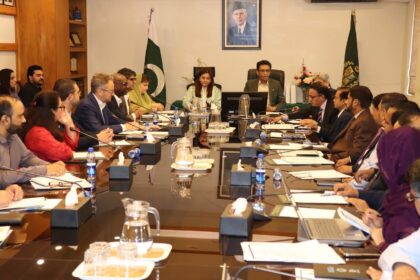A proposal to provide free milk to students in Islamabad’s public schools has ignited intense debate over financial feasibility, logistic hurdles, and alternative approaches through private sector collaborations. While proponents highlight its potential benefits for child nutrition and combating stunting, government representatives warn that heavy costs and infrastructure constraints pose significant challenges.
The proposal, initially presented by Senator Sarmad Ali, seeks to distribute milk to students enrolled in public schools during the academic year. Government representatives, however, expressed critical concern over financial viability. According to official estimates, supplying milk to roughly half of Islamabad’s student population—approximately 56,000 children—for 170 school days annually would cost more than Rs. 900 million. If the initiative covered all public school students, expenses could escalate beyond Rs. 2 billion per year. Currently, there is no available funding earmarked to support such an ambitious undertaking.
Logistical challenges related to milk distribution further complicate the situation. Milk’s short shelf-life necessitates strict cold storage solutions from production through to distribution. Officials admitted that Pakistan presently lacks the comprehensive cold-chain infrastructure needed to maintain freshness and safety on such a broad scale. They also pointed to international advice, particularly from global institutions like the World Food Programme, which favors comprehensive meal programs instead of milk-only distribution initiatives due to safety and health concerns—such as lactose intolerance among some children.
Rather than dismissing the proposal entirely, the committee members deliberated pursuing alternatives, especially the potential for a Public-Private Partnership (PPP) to address financial and logistic challenges. The participants noted successful PPP models in Punjab, highlighting examples where private companies such as Nestlé, Friesland, and All Fresh have introduced free milk programs as part of their Corporate Social Responsibility (CSR) initiatives. These enterprises reportedly employ digital monitoring systems to track milk delivery and systematically assess children’s health outcomes, including parameters such as height and eyesight. Such interventions help mitigate fraud or misuse of resources, ensuring transparent and effective service delivery.
Adding nuance to discussions, Senator Kamran Murtaza offered a more targeted approach. He suggested limiting milk distribution exclusively to children from low-income backgrounds or underserved areas and proposed linking the initiative to Zakat fund provisions. In his view, this model would guarantee support for the most vulnerable students while allowing financially comfortable families the opportunity to opt out voluntarily.
Ultimately, committee members agreed to explore the proposal further by inviting private sector representatives, especially those already administering similar initiatives in Punjab, to participate in their subsequent discussions. These companies will be requested to present their existing programs, outlining practical means by which such initiatives could be effectively scaled up within Islamabad.
The debate took place during a session of the Senate Standing Committee on Federal Education and Professional Training, chaired by Senator Bushra Anjum Butt. Committee members underscored the importance of enhancing child nutrition, emphasizing that any measure taken must balance social responsibility with thoughtful strategic planning and fiscal prudence.











